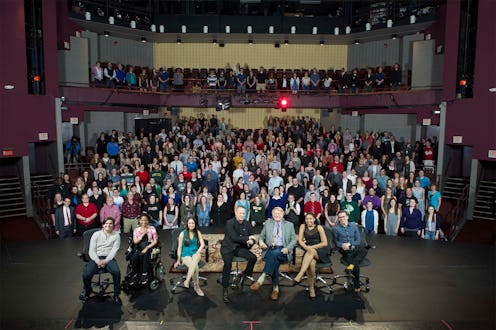News
Why Wright State University Didn't Host The Debate
Wright State University was set to host one of the biggest events of the election season: the first presidential debate of the election. But on July 19, two months before the Sept. 26 debate, the university in Fairborn, Ohio announced that it was pulling the plug on the whole thing, and the event ultimately went to Hofstra University in Hempstead, New York. So why didn't Wright State University host the debate? The price tag looked like it was going to outweigh the benefits for the public university.
WSU President David Hopkins cited the growing costs of securing the open campus as the main reason that Wright State had to withdraw. Hopkins estimated that the cost of hosting the event, initially estimated at $3.5 million, was growing to an estimated $8 million. Hopkins cited heightened security concerns as a cause for the spike, specifically mentioning July's terrorist attack in Nice, France. “I can’t assure the safety of our students and the community,” Hopkins said in his July 19 announcement, according to The Dayton Daily News. He later expanded the comment: "We were fully aware of the challenges and were prepared to meet them when we decided to host the debate, but things have changed. The current national environment has made security even more critical."
Earlier in July, university officials still seemed excited about the event, noting that, though it was expensive, it would bring recognition to the university and the surrounding area. Paul Newman Jr., the Fairborn Chamber of Commerce executive director, estimated that the event would've flooded the area with $25 million. But ultimately, Hopkins and university officials had to weigh the option of dipping into the schools reserves, which have dropped significantly as the school spends more than it takes in.
Private universities have an easier time securing campuses for debates. But because Wright State University is a private university, it can't restrict public access, which would've meant adding lots of security precautions. Hofstra University, which took over the debate, offered at least some sort of consolation to a handful of Wright State students. Hofstra offered the chance for 15 Wright State students to attend the debate a day after it was announced that they would take over.
After the debate at Hofstra, there will be two more presidential debates during October. Washington University in St. Louis and the University of Nevada, Las Vegas will host the remaining events.
